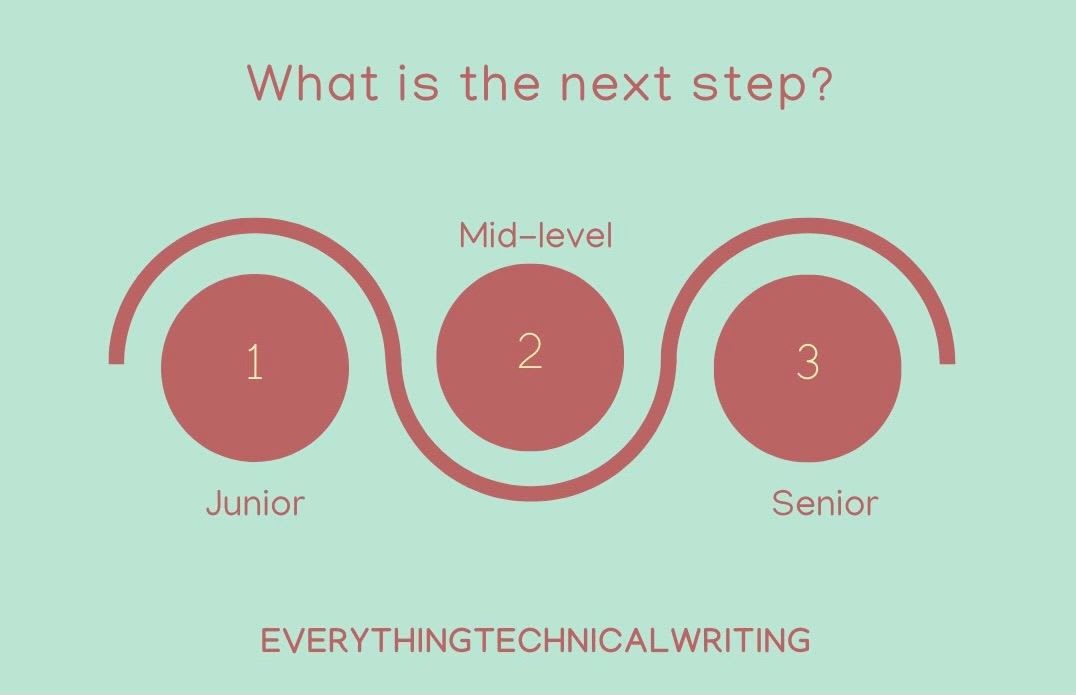
Introducing Linda’s Career Tidbits, a new series where I answer frequent career questions I’m asked. While these pieces may not be strictly focused on technical writing or technical communication careers, they would be generally helpful. If you have any of such questions you’d like to have me answer, reach out.
I sometimes have the privilege of mentoring newbie professionals, and one question I’m often asked is, “At what point do I stop identifying as a junior professional?”. Here’s my answer to that:
If you’re employed, your organisation likely has a level matrix you can use to assess yourself.
It’s important to remember that moving up a level isn’t about how long you’ve been in a role but rather about your growth in skills and abilities. You could stay in a position for 4 years and still be considered junior if your skills haven’t advanced. It’s really about your confidence in your abilities, the complexity of the projects you take on, and how well you navigate your field independently.
However, if your company doesn’t have a level matrix, or you’re not currently employed, here’s a general guide to help you determine if you’ve moved beyond the junior stage:
| Metric | Junior | Mid-Level | Senior |
|---|---|---|---|
| Skill Mastery | Developing foundational skills, often focused on learning and understanding core concepts. | Proficient in most core concepts, comfortable with complex concepts, and able to apply them in practice. | Expert in a broad range of skills, with deep specialization in some areas, and can learn new skills quickly. |
| Scope of Projects | Works on smaller, well-defined tasks or projects with a narrow scope. | Manages moderately complex projects with broader scope, able to connect different aspects of a project. | Leads large, complex projects that have a significant impact, considers long-term implications. |
| Autonomy in Problem-Solving | Relies heavily on guidance and needs detailed instructions. | Can solve most problems independently but seeks help for unfamiliar challenges.Takes ownership of projects and can lead small initiatives or sub-teams. | Solves complex problems creatively and independently, often consulted for solutions to tough challenges.Leads large projects, influences strategic decisions, and is often a key decision-maker or advisor. |
| Understanding Best Practices | Learning and applying best practices with guidance, and may not yet recognize why they matter. | Understands best practices and why they matter, and applies them consistently, plus recognises when to adapt them. | Defines and sets best practices, understands trade-offs, and knows when to deviate based on context. |
| Contribution to Team | Primarily focused on their own tasks, and have limited contribution to broader team success. | Contributes to team discussions, occasionally assists peers, and shares insights. | Actively mentors others, drives team initiatives, and plays a key role in fostering team growth. |
| Mentoring | Rarely mentors others, as they are still focused on their own learning. | Provides guidance to junior colleagues, helps with peer reviews, and shares knowledge. | Regularly mentors juniors and mid-level professionals, creates learning opportunities, and provides career guidance. |
| Collaboration | Collaborates mainly within their immediate team, with limited cross-functional interaction. | Works well in cross-functional teams, understands how their work fits into larger goals. | Facilitates cross-team collaboration, builds bridges between departments, and aligns team efforts with strategic goals. |
| Communication | Reports on progress, may struggle with articulating complex concepts clearly. | Communicates effectively with both technical and non-technical stakeholders, can convey ideas and feedback. | Excellent communicator, adapts messaging to diverse audiences, and often represents the team or company externally. |

